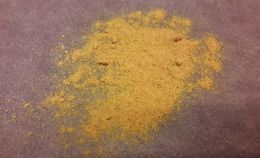All disease begins in the gut. – Hippocrates The more I learn about different diseases and health issues, the more times it usually comes back to the gut as the main source of the issues. An unhealthy gut contributes to many diseases including diabetes, obesity, rheumatoid arthritis, autism spectrum disorder, depression and chronic fatigue syndrome. The main things we need to make sure are working properly are the gut flora and the integrity of the intestinal wall. Among other things, the gut flora helps GI track function properly so we are removing what needs to go. It also provides protection from infection. 75% of our immune system is in our gut. If your gut flora is out of balance, we see increased diseases ranging from autism and depression to autoimmune conditions like Hashimoto’s, inflammatory bowel disease and type 1 diabetes. Antibiotics are one of the worst culprits for creating unbalanced gut flora. If you don’t repopulate the good bacteria after use of antibiotics, your body can’t come back from it. You can do this by taking high doses of probiotics with multiple strains. You could also eat cultured vegetables, watch out for sugar though. The integrity of the intestinal wall is another huge factor in gut health. If your gut lining is compromised (leaky gut) you are allowing things that shouldn’t go into the blood stream to get through. Then the body is told to attack and create inflammation to protect the body from this intruder. This creates auto-immune disease, food sensitivities, and allergies, among others. You don’t have to have gut symptoms to have a leaky gut. Leaky gut can show up as skin problems like eczema or psoriasis, heart failure, autoimmune conditions affecting the thyroid (Hashimoto’s) or joints (rheumatoid arthritis), mental illness, autism spectrum disorder, depression and more. How do we restore and maintain a healthy gut?
- Avoid refined carbohydrates, sugar and processed foods.
- Take digestive enzymes.
- Avoid wheat and industrial seed oils (corn, cottonseed, safflower, soybean, etc.).
- Manage stress.
- Eat plenty of fermentable fibers (starches like sweet potato, yam, yucca, etc.).
- Eat fermented foods like kefir, yogurt, sauerkraut, kimchi, etc., and/or take a high quality, multi-species probiotic.
- Diversify what you eat.





















